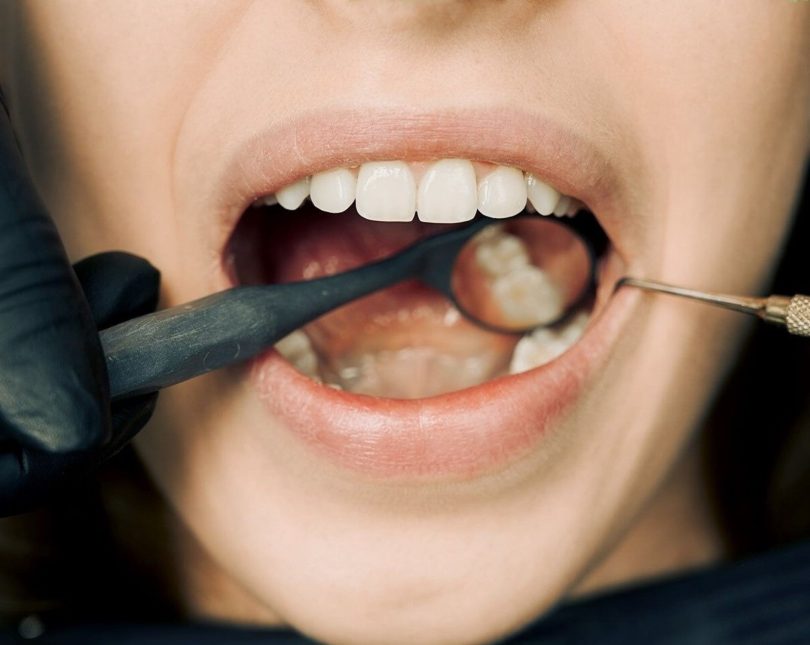We all experience spells of dry mouth now and then. The question of whether dry mouth is a cause for concern is something more serious to consider. Whilst self-diagnosis is not advised and can create dental anxiety, it is always best to assess your symptoms before you seek professional help.
It is very normal to experience dry mouth from time to time. Persistent dry mouth however is something that would need further investigation and opinions from professionals.
Your symptoms may be as simple as experiencing dehydration, or it may be a result of an early-onset disease that needs immediate attention. Take a look at the following thing to consider if you are experiencing dry mouth:
What Is Dry Mouth?
A dry mouth refers to a condition characterised by inadequate production of saliva in the mouth. Saliva plays a crucial role in maintaining oral health by keeping the mouth moist, aiding digestion, and preventing tooth decay and gum disease. When the salivary glands fail to produce enough saliva, the mouth becomes dry and uncomfortable, leading to a range of health issues.
What Are The Signs Of Dry Mouth
If you have never experienced dry mouth before and are expecting strange changes to your normal oral functioning, take a look at the following symptoms to look out:
- Dry sensation in the mouth – experiencing a dry, sticky sensation in the mouth is a common symptom of having a dry mouth. This can make you feel uncomfortable and constantly thirsty which is not usually the root of the problem.
- Frequent sore throat – Having a dry mouth not only affects your mouth, but you will likely feel a dry and harsh sensation in your throat also.
- Bad breath – If you have ever experienced morning breath, the same process happens when bad breath occurs during the dry mouth. We breathe using our mouth predominantly when we are asleep which results in the lack of saliva, which likewise occurs during dry mouth.
Health Concerns of Dry Mouth
Some health problems can occur as a result of having a dry mouth. Some are more detrimental than others, however, they can all get progressively worse if the problem is not treated:
Dental problems
Saliva essentially acts as a natural cleanser, helping to wash away food particles and neutralise harmful acids. Without enough saliva in our mouths, the risk of tooth decay and gum disease significantly increases leaving us at risk of having permanent oral problems. Dry mouth as mentioned can cause bad breath, cavities, and oral infections, making it crucial to address the issue promptly.
Difficulty in chewing, swallowing, and speaking
Not enough saliva can lead to difficulties in chewing and swallowing, which can result in malnutrition and even weight loss. Additionally, dry mouth can affect speech clarity, causing difficulties in articulation and pronunciation. This ultimately can reduce our quality of life, bring on anxiety, and overall cause difficulty with basic processes.
Increased risk of oral infections
Saliva contains antimicrobial properties that help protect the mouth against harmful bacteria. When saliva production decreases, the mouth becomes more susceptible to infections such as oral thrush (a fungal infection) and other bacterial infections that creep into crevices in our mouths.
Oral discomfort
Dry mouth can cause persistent dryness, soreness, and a burning sensation in the mouth. These symptoms can make it uncomfortable to eat, speak, and even sleep if the problem persists and is not treated. Symptoms such as these should not be ignored.
Impaired taste and nutrition
Saliva contributes to our sense of taste by carrying the flavour molecules to our taste buds. Low levels of saliva production can affect the ability to taste food properly, leading to a reduced appetite. This can potentially lead to inadequate nutrient intake, affecting overall health and well-being.
What Are The Common Causes of Dry Mouth?
Medications: Dry mouth is a common side effect of various medications, including those used to treat allergies, depression, high blood pressure, and anxiety.
A dry mouth is a symptom of many of the regular medications perceived today, so make sure you check if your current perceptions are the cause of your dry mouth.
If you experience dry mouth as a medication side effect, consult your healthcare provider to explore alternative options or resolutions for experiencing a dry sensation.
Dehydration
Not drinking enough fluids can lead to temporary dry mouth. This cause is the simplest one to correct, and the addition of sufficient amounts of fluids throughout the day can solve the issue. We should all be drinking at least 2 litres of water a day. You can also quench your thirst by having fruits with high concentrations of water.
Smoking and Alcohol
Smoking and excessive alcohol consumption can contribute to dry mouth. Both tobacco and alcohol can dehydrate the body and reduce saliva production which ultimately causes dry mouth. Smoking and alcohol should be avoided at all costs if you hope to reduce the symptoms of dry mouth. These habits also have detrimental effects on your body’s overall health, so begin reducing your consumption now before you develop permanent health complications.
Nerve Damage:
Injuries or surgeries that affect the head or neck area can damage the nerves responsible for salivary gland function, leading to dry mouth. This is a rarer cause of dry mouth, but if you have had any trauma around the areas mentioned there may be permanent effects to the nerves that are responsible for the gland functioning.
Conclusion
Dry mouth is not merely an inconvenience but a significant health concern that can impact oral health, nutrition, and overall well-being. If you experience persistent dry mouth, it is essential to identify and address the underlying causes. It is valuable to identify these issues yourself and relay them to a healthcare professional who will be able to appropriately diagnose you and therefore treat the problem. Maintaining good oral hygiene, staying hydrated, avoiding tobacco and excessive alcohol, and seeking medical advice when necessary are vital steps in mitigating the health risks associated with dry mouth. Remember, a well-hydrated mouth is a healthy mouth!
Author’s Bio:
Amy Jones is a freelance health and wellness writer. She loves researching and writing about new health trends and dental topics, and has worked with a number of dentists offering dental implants in Milton Keynes , as well as keeping up to date with the latest health news.








